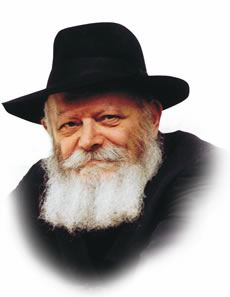Click here for a printable PDF.
Our Parshah, Ha’azinu, tells us that Moshe called the heavens and the earth as witnesses while telling the Jews of the consequences for their actions. Afterward, the Torah tells us that Moshe taught the Jews, while accompanied by his prize pupil, Yehoshua[1]. “And Moshe came and spoke all the words of this song into the ears of the people, he and Hoshea bin Nun.”
The surprising thing here is that the Torah refers to Yehoshua as Hoshea. That was his name many years earlier when he was sent as one of the twelve spies. When they left on their mission, we are told that[2] “… Moshe called Hoshea bin Nun, Yehoshua.” Why does the Torah revert to his former name? It was already forty years that he was not called by this name.
Rashi explains this as follows. “… Why does the Torah call him Hoshea here? This is to imply that Yehoshua did not become haughty. Although he was given high status (having been appointed as Moshe’s successor), he humbled himself just as he was at the beginning (when he was still called Hoshea).
Why does the Torah choose to tell us of Yehoshua’s humility here? Here Hashem chose him take Moshe’s place as leader of the Jewish Nation after his teacher’s passing. He was genuinely attaining greatness, as the one who would lead the Jews into the promised land. Nevertheless, he remained as humble as ever.
Whoever merits a position of leadership receives Divine assistance to help him fulfill his mission. Hashem never gives one a job that he is incapable of handling. Leading Jews is certainly a most difficult task, as we saw throughout Moshe’s forty years of leadership in the wilderness. Together with the position, comes the Divine power which aids one in handling it.
What lesson can we derive from this? As a result of attaining a position of leadership, and receiving this Divine aid, one may believe that he truly deserves it. This may cause a feeling of haughtiness. Nonetheless, we must all learn from Yehoshua, that no matter what the position, we must always retain the necessary feeling of humility.
May we all have a good, sweet year both in spiritual and physical matters. The new year which we just began should be sweet in a revealed manner. We should merit the ultimate blessing of Moshiach Now!
Rabbi Shmuel Mendelsohn
Adapted from Likkutei Sichos Volume 29, Page 201
DEDICATED IN HONOR OF THE LUBAVITCHER REBBE
מוקדש לזכות כ”ק אדמו”ר נשיא דורנו מליובאוויטש
לזכות
חיילי “צבאות השם” חיים ועדן עודד שיחיו מאריס
*
נדפס ע”י הוריהם
הרה”ת ר’ מנחם מענדל וזוגתו מרת חי’ מושקא שיחיו מאריס
[1]. Our Parshah, Devorim 32:44.
[2]. Parshas Shelach, Bamidbar 13:16.

